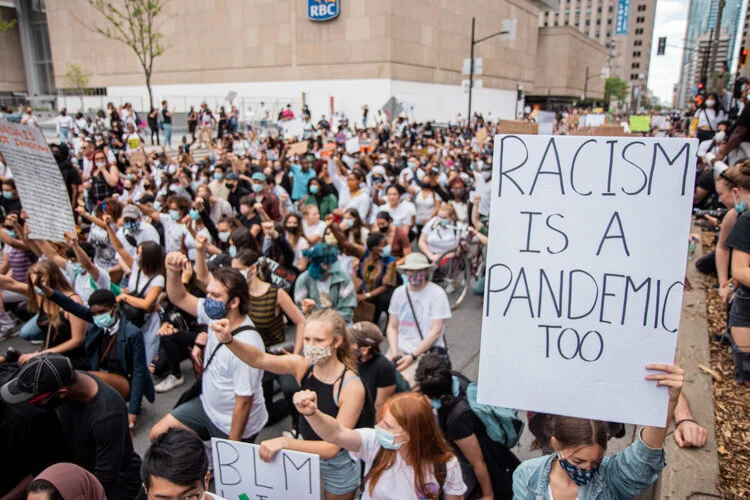Wayne Herbert, disability employment professional and person with disability makes a powerful argument for inclusive education. Segregation in education is indefensible on human rights and outcomes grounds.
Read MoreAustralia’s child protection systems have long failed the families and children it was designed to protect. The structural injustices of the child protection system can be tackled by building institutional justice capital. This must include parental rights, non-violence, respectful relationships and public debate argue Dr Sharynne Hamilton and Dr Sarah Maslen.
Read MoreDespite being 30 years since the Royal Commission into Aboriginal deaths in custody, families continue to lose loved ones. More than 455 Indigenous Australians have lost their lives in police or prison custody since the Royal Commission reported and according to families, the loss of life is higher than what has been reported. In today’s post, Eddie Cubillo, a proud Larrakia, Wadjigan, Central Arrernte man from the Northern Territory and Senior Indigenous Fellow at Melbourne Law School, University of Melbourne, highlights successive government’s failure to act on the Royal Commission’s recommendations and calls for taking real and effective action into Aboriginal deaths in custody.
Read MoreToday's post is from Tina Haywood, an author and proud Aboriginal woman. In her new book, We are Warriors: An Aboriginal Woman's Life, Tina documents lessons from her own life to encourage other women to make brave decisions, and to build broader understanding of the experiences of Aboriginal women and families navigating individual and intergenerational trauma.
Read MoreToday’s article expands on a recent post by the same author published on Power to Persuade that exposed flaws in processes for government to capture the experiences of people with disability experiencing homeless in recent federal and state government inquiries (link to other post). How can governments better factor the needs and circumstances of people with disability into consultation processes and policies, and how might this improve policy outcomes? The post’s author, who has lived experience of disability and homelessness, looks at the intersection of disability and housing insecurity and proposes some wide-ranging reforms. The author is still in search of stable housing herself and has asked to remain anonymous.
Read MoreResearch shows that people who experience chronic homelessness are likely to have complex needs linked to a developmental or psychiatric disability, a traumatic brain injury, physical health problems and/or mental health issues. Today’s post examines the complex intersection of disability and homelessness in the context of the House of Representatives Standing Committee on Social Policy and Legal Affairs inquiry into homelessness in Australia initiated in February 2020 and the Victorian Government inquiry into homelessness initiated in June 2019. The post raises important questions about whose voices are being heard and included in these inquiries, given that the call for submissions and public hearings overlapped with bushfires, bushfire recovery and the COVID-19 pandemic - a time when the resources and energy of many people with disability, Disabled People’s Organisations, and people in insecure housing were stretched to breaking point and their capacity to focus on and influence the business of government was severely limited. These are not the only examples of government failing to factor the needs and circumstances of people with disability into consultation processes, and it smacks of systemic bias. This post’s author, who has lived experience of disability and homelessness and started a support group for homeless women, is still in search of stable housing herself. She has asked to remain anonymous.
Read MoreThere is increasing cross-sectoral unease about the mental health impact of COVID-19 and the lockdown put in place to combat it. A recent commentary in the Lancet suggested that “suicide is likely to become a more pressing concern as the pandemic spreads and has longer-term effects on the general population, the economy, and vulnerable groups” (Gunnell et al. 2020). While a relationship between COVID and suicide is not clearly established, Dr Anna Lavis argues that the key to forging understandings of their potentially complex connections is an attention to the many suicide-related discussions currently happening on social media.
Read MoreDr Simone Casey (@simonecasey) reminds us today that it’s important to celebrate the small wins as well as aim for large-scale reforms. She describes the work that went into the recent decision to give jobseekers a 48-hour ‘grace period’ between missing a mutual obligation appointment or activity and having their payments suspended.
Read MoreStrong leadership has been key in the successful COVID-19 response by Australia’s Indigenous communities – for Indigenous LGBTIQ+ communities to thrive, leadership requires more nuance. In this blog post, Péta Phelan calls for a more nuanced understanding and leadership from government, Indigenous health organisations and health professionals.
Read MoreTeachers play an important and influential role in the lives of their students, and in many cases, their families, and the community. Their duties and responsibilities extend far beyond meeting learning outcomes, to caring for the social and emotional needs of their students. But who’s looking out for our teachers? The health and safety of teachers and their families must be a priority during the Covid-19 pandemic as they try and balance the different demands at work and home. In this blog post Dr Meera Varadharajan explores the importance of recognition, acknowledgement and support for teachers in the time of Covid-19.
Read MoreAs Victoria enters the unprecedented time of Stage 4 lockdown and a state of disaster is declared in response to the Covid-19 pandemic, disability advocates and academics have come together to highlight the vital importance of state and federal Governments working together to eliminate critical gaps for people with disability.
The situation in aged care homes has already shown a lack of joined up planning and responses can result in preventable harms and risks. In the media release below advocates from the disability sector identify the key areas of concern for people with disability and the urgent need for the NDIA and Victorian Government to implement a plan to ensure people with disability do not suffer through the stage 4 lockdown.
Read MoreA new report from the Centre for Social Impact provides an overview of the impact of the pandemic on the financial wellbeing of Australians, and explains the key elements of the government response so far.
Read MoreTackling COVID-19 must include building a sustainable response in prison systems and other detention settings.
Read MoreWomen who have been to prison should be a priority group for violence prevention.
Read MoreIn Australia, the story of dealing with the coronavirus pandemic so far has been largely a positive one. Leadership and speed of response to this point has been recognised as critical to containment and management of the pandemic (Tiffen 2020). If we were to award the gold medal, it should go to our public health community. But we have seen strength in many quarters and for that reason, Valerie Braithwaite argues that we sell everyone short by singling any one group out.
Read MoreAs unemployment soars, our social welfare systems have been given a much-needed overhaul, albeit these changes are thus far considered temporary. What has not yet been discussed in any meaningful way is how the government will support people back into work. In today’s piece, Simone Casey (@SimoneCasey) of Per Capita (@percCapita) provides an analysis of the Work for the Dole program, an “employment program” that has been highly problematic. This piece first ran in Croakey.
Read MoreIn today’s post, David Hildebrand from the Immigration Advice Service in the UK breaks down some of the reasons why people from BAME communities have been disproportionately impacted by COVID-19.
Read MoreThis post questions the Morrison Government's recent decision to extend the Cashless Debit Card trials until the end of 2020. Dr Shelley Bielefeld (Law Futures Centre, Griffith University), Susan Tilley (University of South Australia), Priya Kunjan (University of Melbourne) and Dr Elise Klein (Crawford School of Public Policy, Australian National University) argue that the decision is unjustified by research and evaluation, and will do more harm than good during the COVID-19 pandemic.
Read More




















